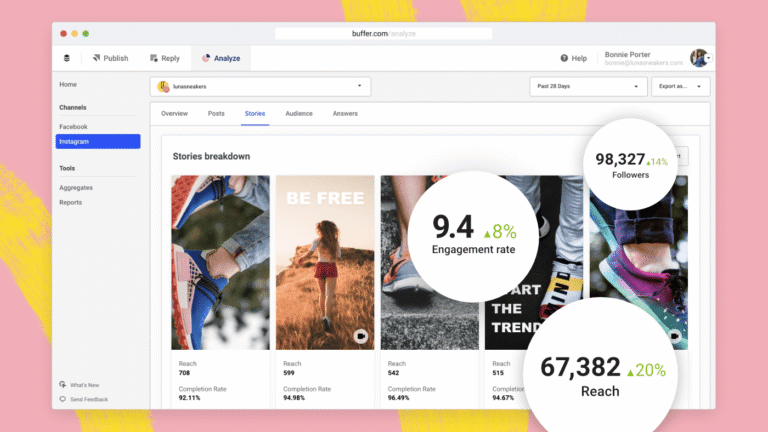In today’s digital age, social media has become a cornerstone of marketing strategies for businesses and individuals alike. With billions of users across various platforms, the ability to engage effectively with audiences is crucial for success. However, measuring social media engagement is more than just counting likes and shares. It involves understanding the impact of your content and interactions on your audience. In this article, we will explore the nuances of measuring social media engagement and its significance in today’s landscape.
Importance of Measuring Social Media Engagement

Measuring social media engagement provides valuable insights into the effectiveness of your marketing efforts. It helps you understand what content resonates with your audience, allowing you to refine your strategies for better results. By tracking metrics such as likes, shares, and comments, you can gauge the level of interest and interaction generated by your posts.
Key Metrics for Measuring Social Media Engagement
1. Likes and Shares
Likes and shares are among the most basic forms of social media engagement. They indicate that users find your content interesting or valuable enough to interact with and share with their networks.
2. Comments and Replies
Comments and replies offer deeper insights into how your audience perceives your content. They provide an opportunity for direct feedback and engagement, allowing you to respond to questions, address concerns, and foster meaningful conversations.
3. Click-through Rates (CTR)
Click-through rates measure the percentage of users who click on a link or call to action in your posts. A high CTR indicates that your content is compelling enough to prompt action, whether it’s visiting your website, signing up for a newsletter, or making a purchase.
4. Conversion Rates
Conversion rates track the percentage of users who take a desired action after engaging with your social media content. This could include making a purchase, filling out a form, or downloading a resource. By monitoring conversion rates, you can assess the effectiveness of your social media marketing campaigns and optimize them for better results.
Tools for Measuring Social Media Engagement
Several tools are available to help you track and analyze social media engagement metrics. Google Analytics offers insights into website traffic originating from social media platforms, allowing you to measure the impact of your social media efforts on driving traffic and conversions.
Social media platforms themselves provide built-in analytics tools that allow you to track engagement metrics such as likes, shares, comments, and impressions. Additionally, third-party analytics tools offer more advanced features and deeper insights into social media performance.
Strategies for Improving Media Engagement
To enhance social media engagement, it’s essential to develop and implement effective strategies. Consistency is key—maintain a regular posting schedule to keep your audience engaged and informed. Focus on creating high-quality, relevant content that resonates with your target audience. Encourage interaction by asking questions, soliciting feedback, and responding promptly to comments and messages.
Case Studies
Numerous brands have achieved remarkable success with their social media engagement campaigns. From user-generated content contests to influencer partnerships and interactive quizzes, there are countless creative ways to captivate and engage your audience. By studying successful case studies, you can gain inspiration and insights for your own social media marketing efforts.
Future Trends
As technology and consumer behavior continue to evolve, so too will the methods for measuring social media engagement. Artificial intelligence, machine learning, and predictive analytics will play increasingly significant roles in understanding audience behavior and tailoring content to meet their needs and preferences. By staying informed about emerging trends and adopting innovative tools and strategies, businesses can stay ahead of the curve in the ever-changing landscape of social media marketing.
Conclusion
Measuring social media engagement is essential for understanding the impact of your marketing efforts and fostering meaningful connections with your audience. By tracking key metrics, leveraging powerful analytics tools, and implementing effective strategies, you can optimize your social media presence and drive tangible results for your business or brand.
Are you ready to take your social media engagement to the next level? Request a demo from AIM Technologies today and discover how our innovative solutions can help you unlock the full potential of your social media marketing strategies.
FAQs
Why is social media engagement important?
- Social media engagement allows businesses to connect with their audience on a personal level, build brand loyalty, and drive meaningful interactions that can lead to conversions and sales.
What are some common social media engagement metrics?
- Common social media engagement metrics include likes, shares, comments, click-through rates, and conversion rates.
How can I improve social media engagement?
- To improve social media engagement, focus on creating high-quality, relevant content, maintaining a consistent posting schedule, and actively engaging with your audience.
Which tools can I use to measure social media engagement?
- Tools such as Google Analytics, social media insights, and third-party analytics platforms can help you analyze social media engagement metrics.



